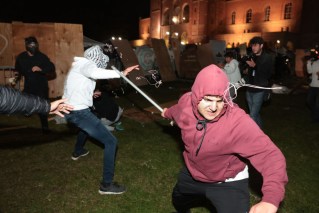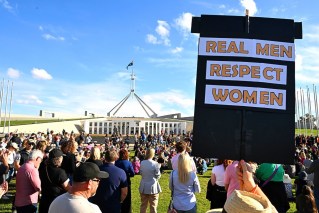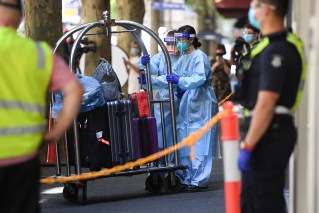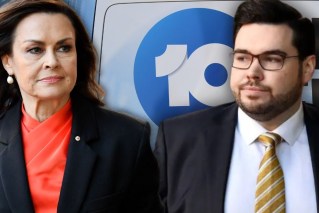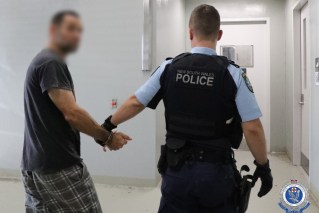ADF chief admits mistakes in using SAS in Afghanistan

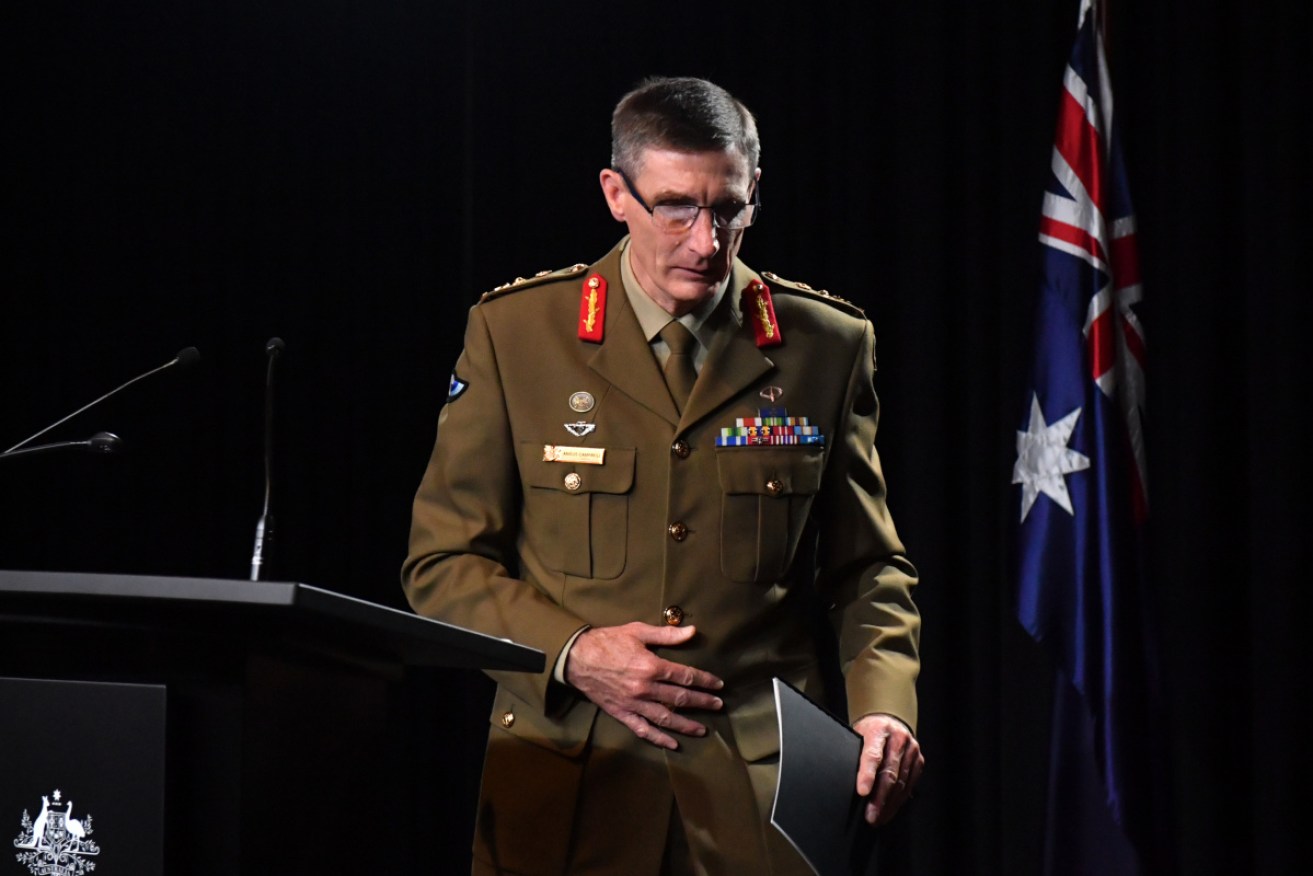
ADF Chief Angus Campbell has warned of a lack of transparency from China over its military build-up. Photo: AAP
Australia’s Army chief says he was “sickened” after hearing reports of war crimes committed by Australian soldiers, as repercussions and finger-pointing continue over the allegations.
Lieutenant General Rick Burr said he was “shocked by the extent of the alleged unlawful acts”.
In an interview with Nine’s 60 Minutes, Lieutenant General Burr spoke about being at the Perth headquarters for the Special Air Service (SAS) when the findings of a report by Major-General Paul Brereton were handed down.
“I was sick. I was sickened, particularly by the allegations of blooding,” he said.
“That is absolutely not what I expect of anyone in our army, anywhere in our army at any time, and why I’m so determined to lead our army through this into a better place.”
Earlier, the head of the Australian Defence Force admitted that, in “hindsight”, SAS troops could have been used less in Afghanistan.
General Angus Campbell warned the “horror” detailed in the Inspector-General’s report could be repeated unless the army fixes festering cultural issues among elite soldiers.
“I want the ADF to acknowledge that this is something we’ve got to own because if we don’t own it, we won’t fix it. And if we don’t fix it, this horror may appear again,” he told ABC’s Insiders program on Sunday.
“I just cannot accept that.”

The IGADF report detailed unlawful killings by Australian soldiers in Afghanistan.
General Campbell admitted SAS troops had committed shocking breaches of military rules, after the extensive IGADF report handed down last week.
It found “credible evidence” of at least 19 incidents of 25 Australian soldiers killing 39 Afghan citizens, as well as two incidents of “cruel treatment”.
The report includes one case where a soldier allegedly shot a kneeling prisoner in the head, and several incidents of ‘blooding’ of young members as senior troops encouraged them to kill a wounded or unarmed Afghan.
General Campbell said on Thursday the ADF was being “rightly held to account” with the report’s release.
On Sunday, he said the army had to own up to the sickening allegations, with the IGADF report alleging senior troops and officers either encouraged criminal conduct, or knew about it and turned a blind eye.
“There is no shortage of officers, senior, non-commissioned officers and soldiers, who are looking at this report and reflecting on their part in this story and it is not a good story at all,” General Campbell said.

General Angus Campbell presents the report on Thursday. Photo: AAP
“I see layers of responsibility here … I’m determined to see deep, comprehensive and enduring change where it is needed.”
Medals will be revoked, army squadrons disbanded, and criminal charges potentially laid.
The general said he would also be held to account, considering his past position as Commander of Australian troops in the Middle East in 2011 was part of the period covered by the report.
On Friday, General Campbell told ABC Radio he had not seen the conduct detailed in the report while he was leading Australia’s troops, but since asked himself “What did I miss … what could have been done otherwise?”
General admits SAS error ‘in hindsight’
ADF top brass have promised cultural change, before what is likely to be many more years of exhaustive investigation before any of these alleged war crimes ever reach the stage where people are charged, tried or potentially convicted.
General Campbell admitted lessons could be learned about how Australia uses such elite troops in future.
WATCH: Defence Force Chief General Angus Campbell on whether special forces were asked to do too much in Afghanistan that regular forces could have been doing and whether that was a political or defence decision. #auspol #insiders pic.twitter.com/tfc2K2vKhu
— Insiders ABC (@InsidersABC) November 21, 2020
He defended the use of SAS in Afghanistan, but conceded other troops could have been used instead.
“In terms of their role in Afghanistan, there were aspects right from the start and all the way through that campaign which necessarily had to be done by special forces capability,” General Campbell said.
“But there are other elements that Justice Brereton refers to that, in hindsight, perhaps we should have seen rotated to other elements of the force earlier.”
The Brereton report recommended “Special Forces should not be treated as the default ‘force of first choice’ for expeditionary deployments, except for irregular and unconventional operations”.
The IGADF report criticised the repeated redeployment of SAS soldiers, noting many troops were sent back and forth to Middle East up to 10 times.
It was the same point former defence department secretary Paul Barratt made last week, telling The New Daily that special forces troops had been used too often.
“We’ve got into a situation now where the answer to every military problem is seen as special forces,” Mr Barratt told TND.
“I suspect our military leaders have become accustomed to offering special forces. It’s seen as a response to a domestic political imperative of not having too many casualties.”
Call for parliamentary apology
General Campbell has apologised to his Afghan military counterpart for the conduct revealed in the Brereton report.
Prime Minister Scott Morrison also reportedly apologised to Afghan President Ashraf Ghani.
Independent senator Rex Patrick, from South Australia, is now pushing for Australia’s federal Parliament to make a formal apology to Afghanistan.

Rex Patrick will push for a Senate apology. Photo: AAP
The senator is a former ADF member, a petty officer in the Royal Australian Navy’s submarine force from 1983 to 1994.
He said he was “appalled” by the conduct in the report.
He will move a motion in the Senate next week, calling for the Parliament to “sincerely and unreservedly apologise” to Afghanistan, and urge the government to provide “full measure of recompense” to families of those killed.
“It is also incumbent on the Australian Parliament to collectively express our deep regret and apologies to the people of Afghanistan on behalf of the people of Australia,” Senator Patrick said.
“I would particularly urge the other 20 former ADF members [sitting in Parliament] … to support the adoption of a national Parliamentary apology to the people of Afghanistan.”
He also said he hoped the House of Representatives would move a similar motion in that chamber.

